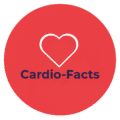Technology is reshaping how we prevent, monitor, and manage heart disease. From smartwatches that record ECGs to AI tools supporting early diagnosis, understanding how technology is transforming cardiology helps patients feel more informed and in control of their heart health.
From Hospital Check-Ups to Real-Time Monitoring
In the past, cardiac care relied mainly on scheduled hospital visits. Today, wearable devices allow patients to monitor their heart health anytime, anywhere. Modern smartwatches can track:
- Heart rate and rhythm
- Physical activity
- Sleep quality
Some models even detect irregular rhythms, such as atrial fibrillation (AFib), and send alerts.
Example: Many patients now use devices like the Apple Watch to record a single-lead ECG and share it with their doctor.
AI: A Powerful New Cardiology Assistant
Artificial Intelligence (AI) is changing how cardiologists interpret tests. AI algorithms can analyze ECGs, echocardiograms, and cardiac imaging within seconds, spotting subtle warning signs of heart disease.
AI does not replace cardiologists — it enhances precision, supports early diagnosis, and may reduce human error.
According to the American Heart Association, AI has the potential to improve clinical decision-making and patient outcomes.
Telecardiology and Remote Consultations
Telemedicine allows heart patients to stay connected with their cardiologist without leaving home. Through telecardiology platforms, patients can send blood pressure readings, ECGs, or symptoms in real time.
Benefits include:
✅ Less travel and waiting time
✅ Faster medication adjustments
✅ Continuous monitoring for chronic conditions like heart failure
Devices such as the KardiaMobile ECG monitor allow patients to record an ECG at home and receive medical feedback quickly.
Health Apps and Home-Based Cardiac Care
Mobile health apps are becoming daily tools for patients. They help track medications, log blood pressure, and encourage lifestyle changes.
A crucial addition for heart failure patients is daily weight monitoring. Sudden weight gain may signal fluid retention — a warning sign of worsening heart failure.
Many cardiologists now recommend smart scales like the Withings Body+ Smart Scale, which syncs data automatically and alerts users to rapid changes.
Home blood pressure monitoring also plays a key role. Devices such as the Omron Blood Pressure Monitor are trusted for accurate, at-home readings.
💡 See also
Heart Failure Symptoms Explained: How to Recognize and Manage It Every Day
Robotics and Minimally Invasive Heart Procedures
Operating rooms are also evolving. Robotic-assisted interventions and 3D imaging allow cardiologists to repair valves or treat arrhythmias with smaller incisions, less pain, and faster recovery.
Procedures once requiring open-heart surgery can now be done through catheters placed in a vein — a major step forward for patient safety and recovery time.
Challenges: Access and Data Security
Despite the benefits, digital cardiology faces challenges:
- Data privacy: protecting sensitive health information
- Accessibility: not all patients can afford advanced devices
- Digital literacy: some may struggle with technology
For technology to truly transform cardiology, it must remain ethical, secure, and accessible to all patients.
The Future: Predicting Heart Disease Before Symptoms
The next frontier is preventive cardiology powered by technology. With AI, genetics, and wearable data, doctors may soon predict heart disease years before symptoms appear, tailoring personalized prevention plans.
Recommended Heart Health Tools
- Apple Watch – ECG and irregular rhythm detection
- KardiaMobile – Portable ECG monitor for home use
- Omron BP Monitor – Accurate blood pressure tracking
- Withings Body+ Smart Scale – Weight and fluid monitoring for heart failure patients
⚠️ Affiliate Disclosure. Some links in this article are affiliate links. If you purchase through them, Cardio-Facts earns a small commission — at no extra cost to you. We only recommend tools we trust and believe in based on clinical experience.
Conclusion
Understanding how technology is transforming cardiology reveals a future where heart care is proactive, precise, and deeply patient-centered. For anyone living with heart disease — or hoping to prevent it — technology offers more than innovation. It offers hope.
FAQ
1. Can a smartwatch detect serious heart problems?
Smartwatches can detect irregular rhythms like AFib, but they do not replace medical diagnosis. Always consult a cardiologist.
2. Is telecardiology safe?
Yes, when using approved medical platforms. It helps doctors monitor chronic patients more closely.
3. How does AI help cardiologists?
AI analyzes ECGs and imaging quickly, helping detect early signs of heart disease.
📚 References (Scientific & Clinical Sources)
- Harvard Health – Can a Smart Watch Diagnose a Heart Attack? https://www.health.harvard.edu/heart-health/can-a-smart-watch-diagnose-a-heart-attack
- Harvard Health – Can a Smart Watch Detect Early Risks for Certain Heart Problems? https://www.health.harvard.edu/heart-health/can-a-smart-watch-detect-early-risks-for-certain-heart-problems
- Mayo Clinic News Network – AI transforms smartwatch ECG signals into a diagnostic tool for heart failure https://newsnetwork.mayoclinic.org/discussion/ai-transforms-smartwatch-ecg-signals-into-a-diagnostic-tool-for-heart-failure/
- FDA – Post-Market Evaluation of Smartwatch Cardiovascular Notifications https://www.fda.gov/science-research/advancing-regulatory-science/post-market-evaluation-smartwatch-cardiovascular-notifications
- American Heart Association – How Artificial Intelligence Can Support Precision Heart Care https://www.aha.org/aha-center-health-innovation-market-scan/2023-08-29-how-artificial-intelligence-can-support-precision-heart-care
⚠️ Disclaimer: The content on Cardio-Facts is for informational and educational purposes only and does not constitute medical advice. Always consult a qualified healthcare professional regarding your health. Read our full disclaimer and legal policies.
